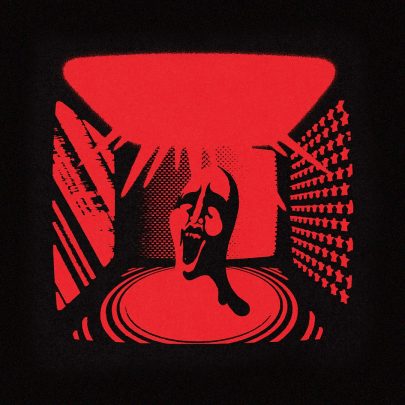Feb 15, 2021 Film & TV
Tom Augustine talks to Auckland’s independent cinemas to explore the industry post-Covid.
There are lines out the door, not an empty seat in the house. Excited filmgoers spill onto the street, bustling and chatty. When we’re seated, there’s that familiar buzz of electric anticipation as we look up at the red curtains that hide the screen of the Hollywood Cinema in Avondale. It’s Halloween, and the film we’re watching isn’t some high-profile modern horror, nor is it an Avengers or Star Wars seat-stuffer — far from it. In fact, we’re watching The Fog, John Carpenter’s eerie low-budget chiller from 1980. It’s not by any means recognised as Carpenter’s finest, or best-known film (that would be Halloween, or The Thing), and yet the cinema is packed to the rafters — in 2020.
Is it the spooky season that has people showing up in droves? Or is it the promise of watching the film in ‘4D Fogarama’, featuring dry-ice effects, light show, and a live-performance element that pop up whenever the film’s supernatural denizens menace the screen? Whatever the reason, anyone looking around this theatre would assume reports of the death of cinema in 2020 have been somewhat exaggerated. And yet, when I speak to Hollywood owner Matt Timpson after what was an extremely successful screening, his outlook is bleak: “Cinemas are dying out. It’s only a matter of time.”
The mutterings about the death of cinema and the cinema experience — an art form that has survived, among other catastrophes, World War II — have been around for decades. And yet, something about the tenor of the doom-rumblings in this era feels especially damning. Whispers of bankruptcy and closure plague the major cinema chains, stranded without any new releases to exhibit. Disney recently put out a historic statement indicating it had shifted its focus to the acceleration of streaming growth, namely its flagship Disney+. One of its biggest releases of the year, Mulan, partly shot here in New Zealand, bypassed theatres to premiere on the platform for an exorbitant fee. The company’s latest Pixar release, Soul, is set to go the same way. Elsewhere, every major title (barring Christopher Nolan’s Tenet, which pushed for a cinema release this year to somewhat grim results) has been pushed until at least early 2021.
Along with the Covid-19 pandemic, which has necessarily shuttered theatres across the world, there’s a complex array of factors at work that may go some way to explaining the slow turning away from the cinema experience we seem to be witnessing, including the increased blurring of content lines between film and television — film series, particularly the big ones, tend to operate more like serialised television shows, and vice versa, creating a weird hybrid. For Aotearoa’s independent cinemas, it means operating in a strange limbo — theatres are open, but often there simply aren’t that many films to actually show in them. “It was supposed to be quite a big year for cinema,” says Ellen Bingham of the Capitol Cinema on Dominion Rd. “We had the new James Bond film, Mulan, Wonder Woman 1984, the new Wes Anderson film.”
The Capitol is one of many Auckland independent theatres with a long and storied history of survival that includes ownership changes and coming close to closure on several occasions. “Everyone was a bit confused during the first lockdown,” Bingham says. “We didn’t really have any plan. We were sold to the new owners right as the first lockdown began… We shut down for six weeks entirely. The plan was when we came back that we’d run as we had previously and try and make new changes as we go along.” At the Hollywood, another cinema that’s lived on brink for decades, a whole calendar worth of planned screenings had to be scrapped.
Almost nine months later, both cinemas are still in business — operating at limited capacity and with a completely different schedule from what they’d expected in 2020. For the Academy Cinemas, under the Central City Library, the pandemic brought the same challenges, but also opportunities. “We were having quite a successful run from last year; we had a lot of momentum,” says Gorjan Markovski, co-manager of the Academy. “Then private hires started drying up, the big titles kept getting pushed, and we hit lockdown. When we got the wage subsidy, we decided to hit the button on our on-demand service.” Enter Academy Cinemas On Demand, a curated streaming service that exhibited films the cinema had shown over the years. When it started during the first lockdown, it featured two hot titles — Parasite and Portrait of a Lady On Fire — which helped keep the Academy afloat.
All three independent cinemas found that things bounced back well soon after the first lockdown. Bala Murali Shingade, a manager at the Capitol, attributes its post-lockdown numbers to the surprise inclusion of sporadic New Zealand International Film Festival screenings, long after the announcement that the festival would be entirely online. But trouble loomed on the horizon. “We are not where we were last year or early this year — it’s breakeven mode,” says Markovski. “After the first lockdown, the mood was really strong, we had good numbers coming in; after the second lockdown, it wasn’t so. Right now, there’s this anxiety there. How do we prepare for the future when we don’t know if there’ll be another lockdown?”
There have been many consequences to the United States’ bungled response to Covid-19, among them a once-formidable cinema output left in tatters. Here in Aotearoa, where Hollywood films have long been cinemas’ bread and butter, their absence is stark. “New Zealand cinema has always been built on Hollywood films,” says Bingham. “With Covid, streaming sites like Disney+ and Netflix are sometimes the only spaces releasing big titles. With Mulan, that didn’t get released in cinemas. With Netflix films like The Trial of the Chicago 7 or The Irishman, we’ll be given a window of maybe seven days to show the film before it goes to streaming.”
To the managers at the Capitol, the pandemic has shown the limits of a system so heavily reliant on a steady supply of titles from the United States. “The US has for so long held so much cultural power over how we as a country get our cultural cues, what makes good music, art, sports and so on,” Shingade says. “Now, cinemas are suffering because of the lack of it.”
He points to the flourishing cinema industries of many Asian cultures as a model that isn’t solely reliant on American product: “Somewhere like India, which produces the most films of any country in the world, I imagine they aren’t affected as badly as we are, as they aren’t as reliant on American cinema. They’re self-sustaining to a point.”
For the Academy, it’s not only the scarcity of new titles, it’s the sense of reluctance on the part of the general populace to come back to the warm hearth of the cinema. “It’s something people need to relearn, especially the people who only would go once or twice a year,” says Markovski. Each cinema responded to the moment in different ways. For the Capitol, it was cultivating a truly independent spirit, buoyed by the patronage of the film festival, and by well-attended retrospective screenings of films like The Fly or The Third Man.
For the Hollywood, it was nostalgia screenings, occasionally boosted by some gimmick or drawcard — a film shown on a 35mm film print, or interactive screenings like Fogarama — as well as being a multi-purpose space that hosts musical performances. The Academy took a three-pronged approach: its on-demand service; highly curated ‘festivals’ like the Classic Universal Monster series, which helped the Academy bounce back post-lockdown; and continuing to foster a sense of community. “The main thing here is maintaining a character as a business so people have a desire to see you continue,” says Markovski. “I think this is something that differentiates us from chains: a community, a curatorial signature.”
Indeed, almost every independent cinema in Auckland seems to rely heavily on its own specific community and, more broadly, on its ‘personality’ as a cinema. Whether it’s the Academy’s classy, heavily curated approach, or the Hollywood’s passionate, slightly rowdy crowds, or the new-look Capitol’s reputation as a hub of quirky, unexpected programming, all the cinemas point to their unique voice as key to their survival. Shingade points to New Zealand theatre, specifically Auckland independent theatre the Basement, as a model to emulate. “The Basement is one of those places that has a community separate to the content it shows. If you’re in town and just finished work, you might just wander down to the Basement and see what’s going on, have a drink, and maybe see the show… What draws you there is the community and the accessibility for people who maybe can’t afford to go and see a high-end show all the time. We’re trying to do that with the Capitol Cinema, but it’s tricky.”
The general impression one gets from talking to the passionate staff of these independent cinemas is that although they’ve found a way to survive, it won’t last forever. There’s the sense that something needs to change. There is a range of issues lurking menacingly for cinemas in the fog of 2020, none greater than the increasing creep of streaming. Many people have made the shift to watching all their film entertainment at home. At recent screenings at the Capitol Cinema for its Film Club of Badlands and Bob & Carol & Ted & Alice (which, full disclosure, I co-curated) it was striking how many casual filmgoers confessed it was their very first time returning to the cinema — an experience that they found they had missed, and profoundly enjoyed.
“It’s one of the last shared experiences,” Bingham says. “People aren’t watching TV together any more. In a cinema you’re experiencing something at the same time as other people. That communal experience, you can’t really replicate that.” Matt Timpson agrees: “Nothing can compare to that feeling of a combined understanding.”
Advocates for the preservation of cinema maintain that that fundamental element, of sitting in a dark room, surrounded by people, a captive of a screen drawing your entire attention, is cinema by definition.
The independent-cinema people spoken to for this piece agree that what cinemas need most is an institutional recognition of their importance as cultural spaces, to be preserved and held in the same regard as libraries, museums or art galleries. “I think it’s important for people to realise these are cultural institutions, they’re part of your community, people’s lives,” argues Markovski. “Having places like ours, like art galleries, having access for people, it’s really important. Whenever people can, it’s their responsibility to help keep it alive.” Timpson, meanwhile, wants to see cinemas revered as ‘places of worship’, but holds a bleaker outlook: “Cinemas will die out, it’s only a matter of time. In the meantime, we should look after them.”
As I leave Fogarama, saying goodbye to my friends, I think about how difficult it is to fight against the pervasive drive of the ‘new’, the feeling that society has moved past what is quickly being considered redundant technology, like the DVDs and CDs of years past. I can’t help but feel that Aotearoa may not realise how tragic the loss of these institutions will be before they’re already gone. Like other cinema advocates, I try to go to as many screenings as I can, and every time, there’s a feeling of clinging to something others have already set aside. The question, to me, is not whether cinemas and the cinema experience should be preserved, but what we must do to preserve them.
As Timpson says: “Cinema has always saved us from our troubles. It’s why Hollywood still exists — the idea of Hollywood, the idea of a collective dream. It’s all up there — projected for us all to connect to.






